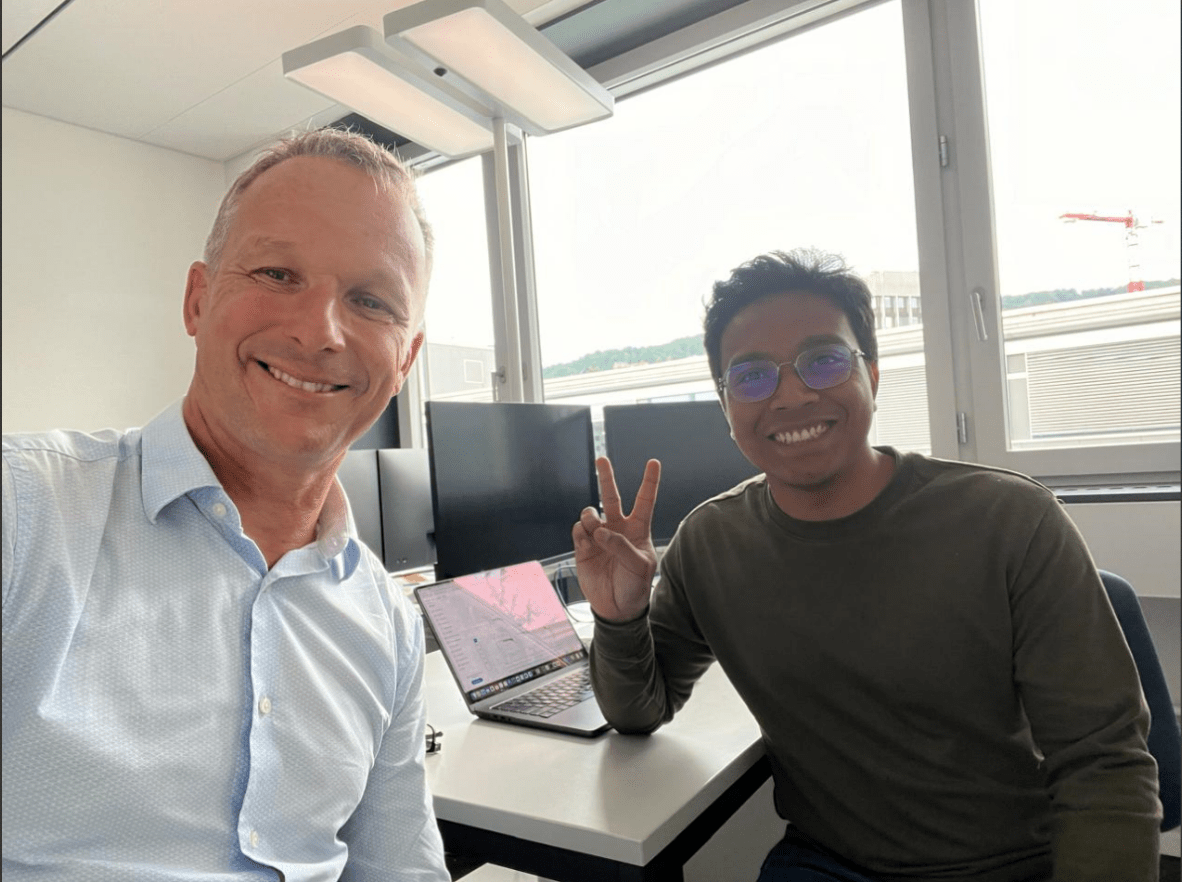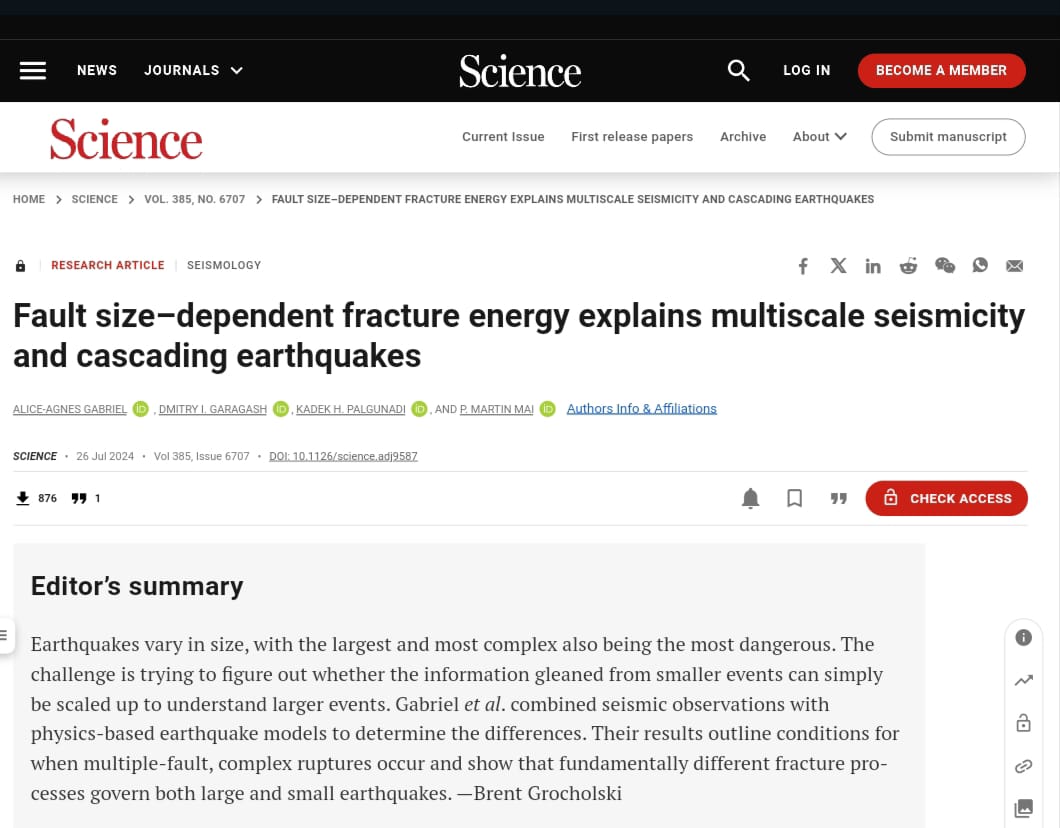ITS Lecturer Discovers New Earthquake Theory in Prestigious International Journal

ITS Geophysical Engineering Department lecturer Kadek Hendrawan Palgunadi ST MSc PhD (right) with one of his supervising professors while studying at King Abdullah University of Science and Technology (KAUST)
ITS Campus, ITS News — Proud news again came from a lecturer at the Department of Geophysical Engineering (DTG) of Institut Teknologi Sepuluh Nopember (ITS), Kadek Hendrawan Palgunadi ST MSc PhD managed to publish his research results in a prestigious international journal. The research article on the findings of a new theory on seismicity was published on the Science platform with an impact factor of 47.
Kadek became one of the authors of the article entitled Fault Size-Dependent Fracture Energy Explains Multiscale Seismicity and Cascading Earthquakes. Science is an academic journal focusing on original research results often related to scientific renewal. For additional information, only about less than seven percent of researcher articles from around the world are accepted on this platform.
Along with three other researchers, Kadek revealed his findings on a theory that shows that the behavior of small and large earthquakes does not follow the same rules. Through his findings, Kadek said that earthquake events can be observed from the beginning until they show a large seismic event. “That will help us in disaster preparedness,” he said.
As in previous research, earthquakes of various sizes are believed to follow the same basic process and physics. However, in his study, Kadek found that small tremors in earthquakes must behave differently from large earthquakes. “This statement is supported by the discovery of new mathematical models and numerical simulations related to earthquake physics that we developed,” said the bespectacled lecturer.

A display of Kadek Hendrawan Palgunadi ST MSc PhD’s journal publications on the Science website page
Furthermore, the doctoral alumnus of King Abdullah University of Science and Technology (KAUST) Saudi Arabia explained that the new mathematical modeling related to earthquake physics shows that the mechanics of cracks and fractures spread like a domino effect. He said that one of the main updates of his findings discusses the differences in friction processes that occur during large and small earthquakes.
Various methods and numerical simulations found a relationship between energy, fault process, and fault size that can help explain the interaction between small faults and nearby larger faults. With some of these theories, researchers can look for conditions where small faults can potentially develop into large earthquakes.
Moreover, this new earthquake theory is also expected to help seismologists understand what happens to plate faults when pressure accumulates over a certain time scale from an earthquake, especially in Indonesia, where many major cities are traversed by faults that have the potential to cause large earthquakes, such as Semarang, Surabaya, Bandung, and Jakarta.
Meanwhile, Kadek said he was very proud in response to his achievement. For him, this achievement can be used as a momentum to increase research competition in Indonesia. Moreover, according to him, there is currently a trend of research in developing countries that only focuses on quantity rather than quality. “Hopefully, we can again publish articles on other prestigious platforms to make ITS and Indonesia proud,” he concluded. (ITS Public Relations)
Reporter: Mifda Khoirotul Azma
Translator: Lael Soebakir
Related News
-
ITS Wins 2024 Project Implementation Award for Commitment to Gender Implementation
ITS Campus, ITS News —Not only technology-oriented, Institut Teknologi Sepuluh Nopember (ITS) also show its commitment to support gender
August 26, 2024 15:08 -
ITS Professor Researched the Role of Human Integration in Sustainable Architecture
ITS Campus, ITS News –The developing era has an impact on many aspects of life, including in the field
August 26, 2024 15:08 -
ITS Sends Off Group for Joint Homecoming to 64 Destination Areas
ITS Campus, ITS News — Approaching Eid al-Fitr, the Sepuluh Nopember Institute of Technology (ITS) is once again facilitating academics who want
August 26, 2024 15:08 -
ITS Expert: IHSG Decline Has Significant Impact on Indonesian Economy
ITS Campus, ITS News — The decline in the Composite Stock Price Index (IHSG) by five percent on March 18,
August 26, 2024 15:08
